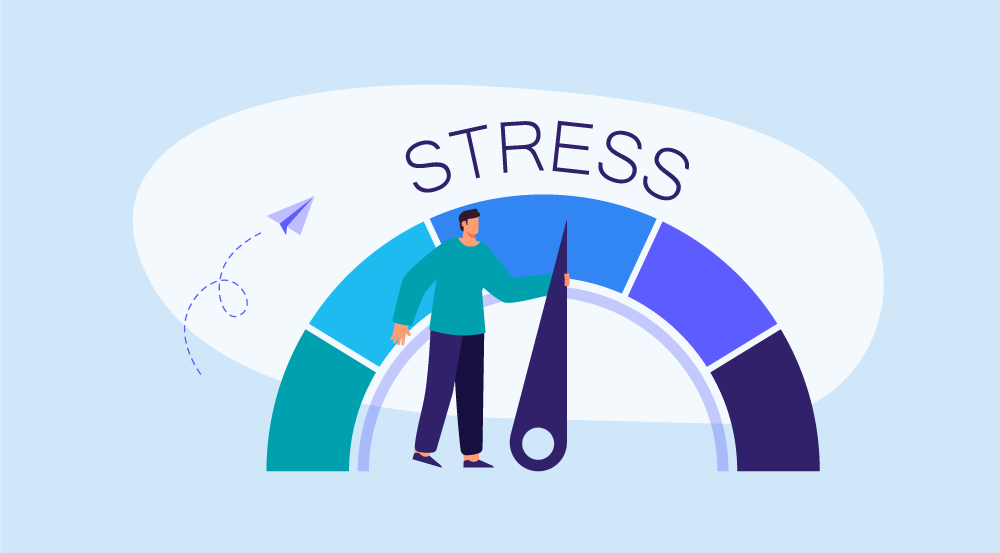
How to Build Mental Resilience in Tough Times
Life is full of ups and downs, and challenging times are inevitable. From personal losses and financial struggles to global crises and workplace stress, everyone faces difficulties at some point. While these challenges can feel overwhelming, building mental resilience can help you navigate tough times with strength, clarity, and hope. Mental resilience is not about avoiding stress but about learning to adapt and thrive despite it. Here’s a comprehensive guide to developing resilience when life gets tough.
1. Understand What Mental Resilience Really Means

Mental resilience is the ability to bounce back from adversity, stress, or failure. It does not mean you won’t feel stress or sadness but rather that you can recover and continue moving forward. Resilient people face difficulties with a proactive mindset. They accept that challenges are a part of life and focus on what they can control, rather than dwelling on what they cannot. Understanding this distinction is the first step in building mental resilience.
2. Cultivate a Positive Mindset
Your mindset significantly influences your ability to cope with stress. Positive thinking doesn’t mean ignoring challenges—it means approaching them with optimism and the belief that you can overcome obstacles. Strategies to foster positivity include:
- Gratitude practice: Write down things you are thankful for every day to shift focus from problems to blessings.
- Reframing negative thoughts: Replace thoughts like “I can’t handle this” with “I will find a way through this challenge.”
- Self-encouragement: Treat yourself with the same kindness and encouragement you would offer a friend in difficult times.
3. Strengthen Emotional Awareness
Being resilient involves understanding and managing your emotions effectively. Suppressing emotions can lead to burnout, while acknowledging and processing them helps you recover faster. Emotional awareness techniques include:
- Mindfulness meditation: This practice helps you observe emotions without judgment and reduces stress.
- Journaling: Writing about your feelings clarifies your thoughts and provides a healthy outlet for emotions.
- Talking to someone you trust: Sharing experiences with supportive friends or family can help release emotional pressure.
4. Build Strong Social Connections

Supportive relationships act as a buffer during tough times. People with strong social connections recover from stress more quickly and are less likely to experience mental health issues. To build resilient support networks:
- Maintain close relationships: Invest time in family and friends who uplift and support you.
- Seek mentorship: Guidance from experienced individuals can provide perspective and encouragement.
- Join supportive communities: Whether online or in person, being part of a community helps you feel connected and less isolated.
5. Develop Healthy Coping Mechanisms
Resilient individuals rely on constructive coping strategies rather than avoidance or destructive habits. Some effective coping mechanisms include:
- Physical activity: Exercise releases endorphins, reduces stress, and improves mood.
- Creative outlets: Activities like painting, music, or writing can provide emotional relief.
- Structured problem-solving: Break challenges into manageable steps and focus on actionable solutions rather than overwhelming yourself with the bigger picture.
6. Maintain a Sense of Purpose
Having a sense of purpose gives life meaning, even in difficult circumstances. Purpose can come from personal goals, career ambitions, volunteer work, or caring for loved ones. A clear sense of direction motivates you to keep going, fosters hope, and reinforces resilience. Regularly remind yourself of your goals and values, especially when facing setbacks.
7. Embrace Adaptability

Change is unavoidable, and rigid thinking can increase stress during difficult times. Cultivating flexibility and adaptability allows you to respond effectively to new challenges. This involves:
- Accepting uncertainty: Understand that not everything is within your control.
- Learning new skills: Adaptability improves when you acquire new knowledge and approaches.
- Adjusting expectations: Being realistic about outcomes reduces frustration and promotes problem-solving.
8. Take Care of Your Physical Health
Physical and mental resilience are interconnected. Lack of sleep, poor nutrition, and inactivity can weaken your ability to cope with stress. Prioritize:
- Adequate sleep: 7–9 hours per night helps maintain emotional balance.
- Balanced diet: Nutrient-rich foods support brain function and energy levels.
- Regular exercise: Even short daily walks reduce stress and improve resilience.
9. Learn from Setbacks
Resilient people view failures as opportunities for growth rather than permanent defeats. Reflect on challenges to extract lessons, identify strengths, and plan better responses in the future. This mindset encourages continual self-improvement and reduces the fear of failure.
Conclusion
Building mental resilience is a lifelong process that combines mindset, emotional regulation, healthy habits, and social support. While tough times are inevitable, developing resilience allows you to navigate adversity with confidence, adaptability, and hope. By practicing positivity, embracing change, and learning from setbacks, you can strengthen your mental resilience and emerge from challenges stronger than before.
